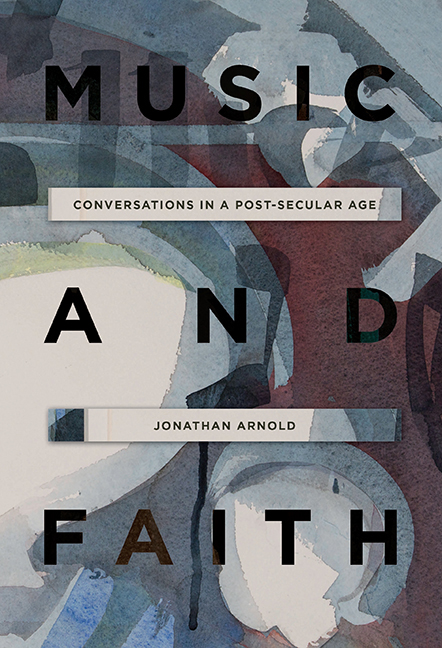Introduction: Faith, Belief and Post-Secularism
Published online by Cambridge University Press: 01 September 2019
Summary
Faith is love, and therefore it creates poetry and music. Faith is joy, and therefore it creates beauty. Cathedrals are not medieval monuments but living buildings where we feel ‘at home’: we find God and we meet others. Neither is great music – Gregorian chant, or Bach, or Mozart – a thing of the past, for it lives in the vitality of the liturgy and our faith. If faith is alive, Christian culture does not become ‘past’ but remains living and present. And if faith is alive, today too we can answer the enduring imperative of the Psalms: ‘Sing to Him a new song.’
Listen. You are about to eavesdrop on some fascinating, thoughtful and honest conversations about people's journey of faith, whether Christian believers or not, and how music has played an important part in that journey. Many of the people interviewed for this book have encountered the darkness of life and lived with it through their Christian faith – the ‘conflict, drama, suffering, on fallen-ness’ of humanity, as Michael Symmons Roberts puts it. Some of the voices you will hear are from those who engage with the countercultural project of the Christian faith today and who find, through being bound to the sacrificial ‘tension, that struggle, that completeness in the midst of incompleteness’. Others are not Christian but nevertheless find immense meaning and mystery in music. Intended as a companion volume to Sacred Music in Secular Society, which focused on composers, performers, philosophers and theologians and their relationship to music and Christianity, this book is centred on those who, by and large, are not professional musicians, philosophers or theologians, but who find that music and faith are bound up with each other and with their own lives. Very often, as the interviews reveal, the results of this ‘binding’ are transformative, whether it be in outpourings of artistic expression of another kind, or greater involvement with issues of social justice, or becoming ordained to serve within the Church. Even those interviewed who do not have a Christian faith find that sacred music has a transformative effect on the mind and the body and even, to use a word deliberately employed by Richard Dawkins, the ‘soul’.
- Type
- Chapter
- Information
- Music and FaithConversations in a Post-Secular Age, pp. 1 - 32Publisher: Boydell & BrewerPrint publication year: 2019

